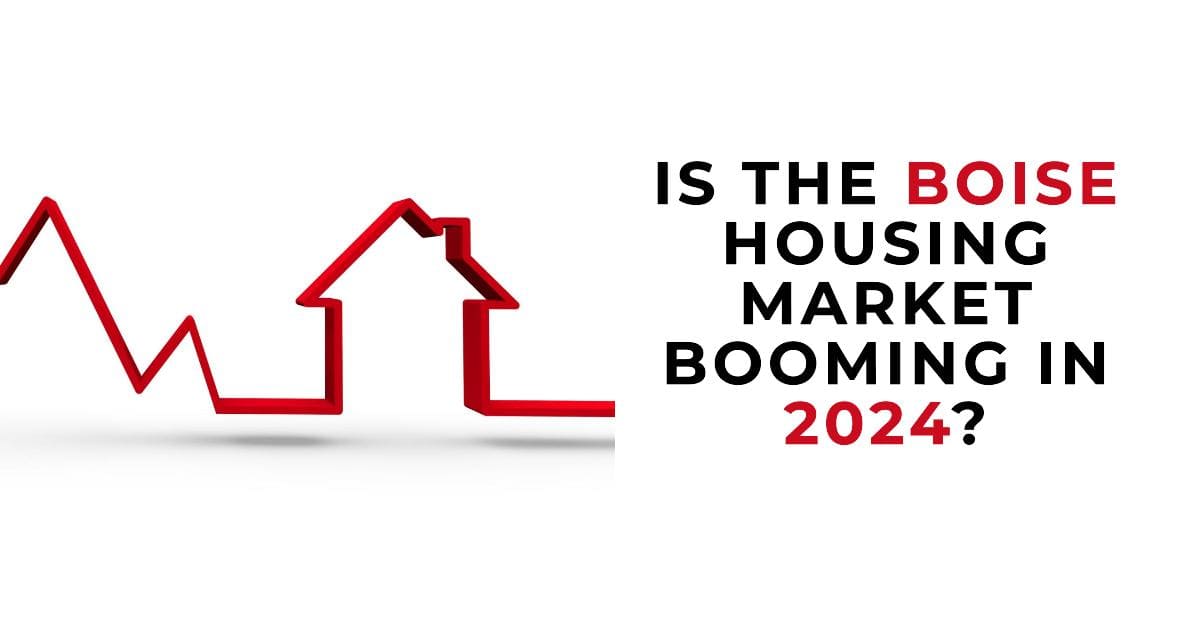Boise's housing market is likely to experience a moderation in price growth, potentially transitioning from a seller's market to a more balanced market. This doesn't necessarily mean a housing crash. Boise's strong economy and underlying fundamentals suggest a continued period of stability, with fluctuations in price growth rather than dramatic declines. Let's explore the housing market trends in Boise.
Price Surge Across the Treasure Valley
Year-over-year price increases are evident across the Treasure Valley, with Ada County leading the charge at a significant 7.5% jump, according to Weknowboise. Boise itself isn't far behind, boasting a 5% increase in median home prices, reaching $525,000. Even Canyon County isn't immune, experiencing a noteworthy 10.3% rise.
This growth is impressive, but it's crucial to consider the context. While some Boise residents may welcome the financial windfall of a rising home valuation, affordability concerns are becoming a growing obstacle for potential buyers, particularly first-time homebuyers.
Bidding Wars Take a Backseat, Speed Remains Crucial
The frenetic bidding wars of the past may be less frequent, but well-priced, move-in ready homes are still disappearing quickly. Homes in Ada County typically find buyers within just 14 days, highlighting the advantage sellers still hold.
This swift pace can be attributed to the limited inventory that continues to plague the market. Many homeowners are choosing to stay put, locked into low mortgage rates from previous years. This creates a domino effect, with fewer resale properties available and a seller's market persisting.
Prices Defy Gravity, for Now
Mortgage rates have reached near multi-decade highs, yet home prices have exhibited surprising resilience. This can be attributed to Boise's robust wage growth, as reported by the Milken Institute. Wages jumped by a remarkable 62% from 2017 to 2022, making Boise one of the fastest-growing major metropolitan areas in the nation.
This strong wage growth allows some Boise residents to absorb the blow of higher mortgage rates. Additionally, the population influx into the Treasure Valley continues to outpace housing supply.
The Community Planning Association of Southwest Idaho estimates a population increase of nearly 100,000 residents since 2020. This surge in population, coupled with limited housing options, continues to fuel demand and push prices upwards.
Inventory Creeps Up, Buyer Demand Shows Tentative Signs of Cooling
Signs of a potential shift are emerging as the number of homes available for purchase edges upwards and mortgage rates surpass the 7% mark. This rise in supply, coupled with increasing rates, seems to be dampening buyer enthusiasm somewhat.
May is typically a peak month in the Boise housing market, but early indications suggest that buyer traffic might be softening. This could be a sign of a return to a more balanced market, where buyers have more options and potentially more negotiating power.
New Construction Steps Up to Fill the Gap
With a dearth of resale properties, new construction is playing a more prominent role, now comprising nearly half of all available listings – a record high. This surge in new construction helps alleviate some of the pressure on existing inventory. However, it's important to note that new builds tend to be priced at a premium compared to resale options.
Additionally, some builders are resorting to offering incentives like interest rate buy-downs to address potential excess inventory. This could be a sign that the market is starting to cool slightly, with builders eager to move product.
Sellers Still Hold Sway, But the Tide May Be Turning
While sellers enjoy a clear advantage currently, April's data reflects a market influenced by the lower rates prevalent in the first quarter. As of early May, the market appears to be shifting towards a scenario where increasing supply meets potentially decreasing demand, which could empower buyers with more negotiating power.
This doesn't necessarily mean a buyer's market is imminent, but a more balanced market where negotiation is a two-way street seems likely on the horizon.
Navigating the Boise Housing Market: Tips for Sellers and Buyers
- Sellers: The spring selling season is in full swing. To capitalize on remaining strong demand, price your home competitively. Don't undersell yourself, but avoid aiming for an unrealistic price either. Finding that sweet spot will be key. Consider the increasing inventory levels and potential buyer hesitation caused by rising rates. A fair and competitive price will likely attract more interest.
- Buyers: Don't be discouraged by the current climate. Rising supply and a potential stall in appreciation could give you more leverage in the coming months. Patience and a strategic approach might be rewarded. Be prepared to move quickly on a property that meets your needs and budget, but don't feel pressured to engage in bidding wars over inflated prices. The market may be shifting in your favor, so be confident in your offer.
The Road Ahead: Predictions for 2024
The Boise housing market is in a state of adjustment. Affordability concerns due to rising rates are impacting buyer sentiments. How this plays out in the coming months will depend on several factors, including:
- Cooling Buyer Demand: Rising mortgage rates and increasing inventory are likely to dampen buyer enthusiasm, leading to a less competitive market environment.
- Price Stabilization: While prices may not plummet, the rapid appreciation seen earlier might slow down.
- Inventory Rise: A potential increase in available homes could give buyers more options and potentially more negotiating power.
- Underlying Strength: Boise's strong economy and job market suggest a continued period of stability, with fluctuations in price growth rather than dramatic declines.
Here are some additional factors that could influence the market:
- Interest Rate Trajectory: If rates continue to climb significantly, it could further cool buyer demand. A significant drop in rates, on the other hand, could reignite buyer fervor.
- National Economic Conditions: A broader economic slowdown could dampen demand for housing nationwide, impacting Boise as well.
Overall, it's unlikely that Boise will experience a housing crash. The market is likely to adjust to the new normal of higher interest rates and potentially more balanced inventory levels.





